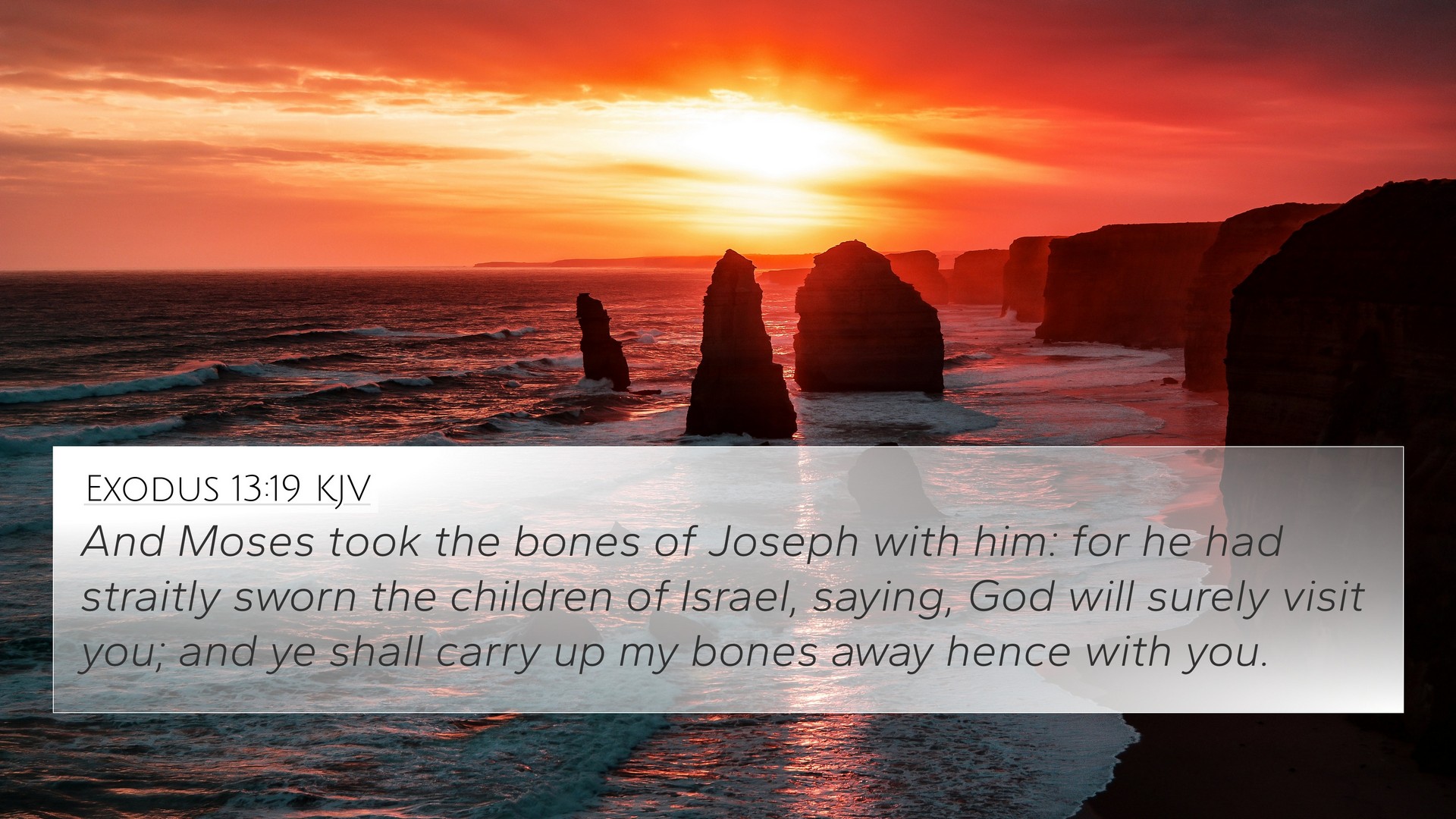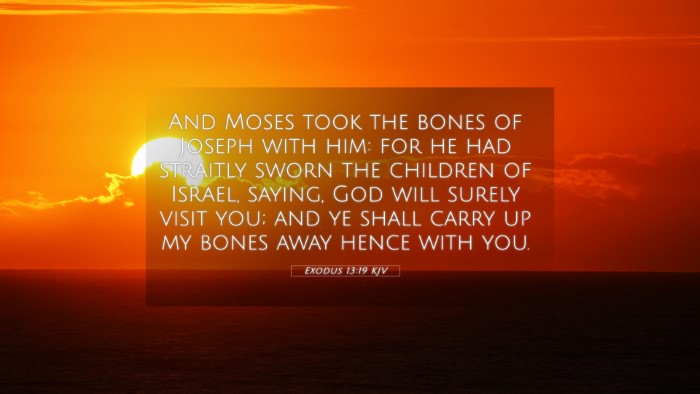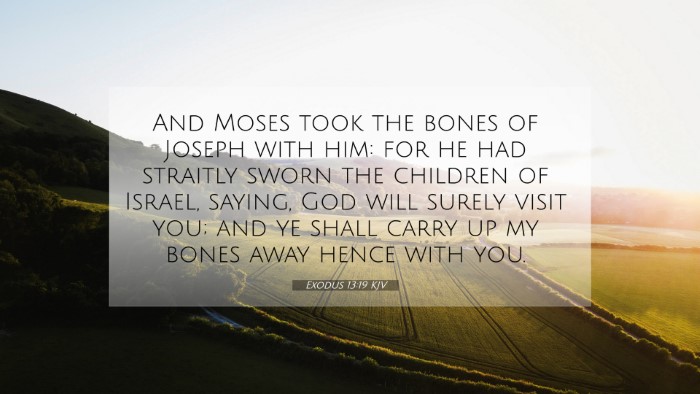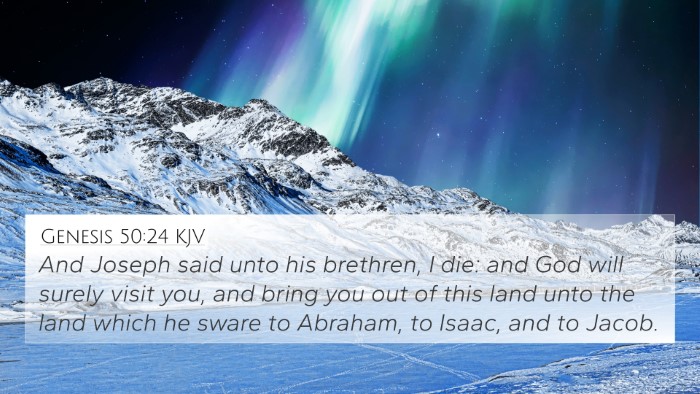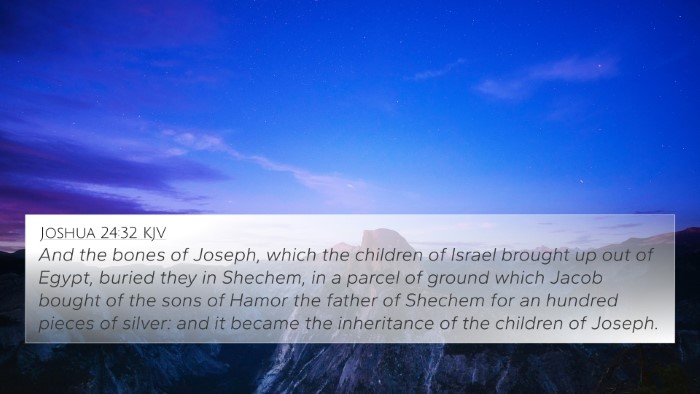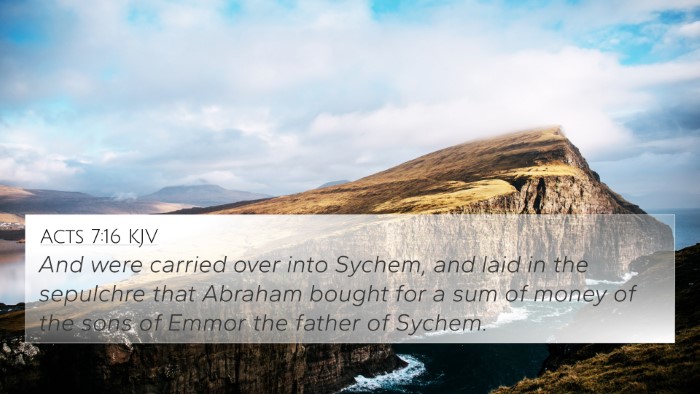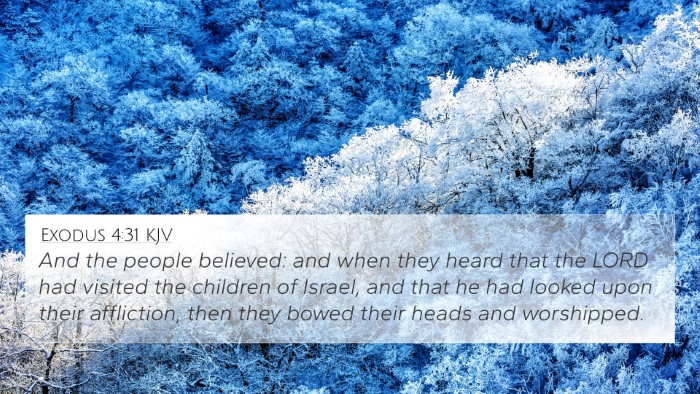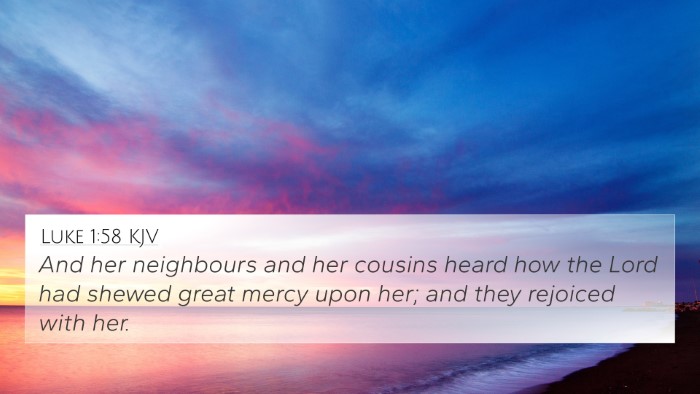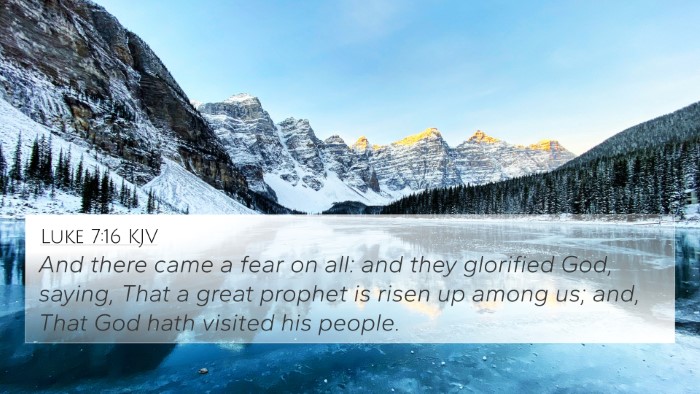Understanding Exodus 13:19
Exodus 13:19 states, "And Moses took the bones of Joseph with him: for he had strictly sworn the children of Israel, saying, God will surely visit you; and ye shall carry up my bones away hence with you."
This verse holds significant meaning in the narrative of the Exodus, showcasing the faithfulness of Moses and the children of Israel to God's promises.
Meaning and Insights
The taking of Joseph's bones serves as a profound symbol of faith and hope. As elaborated by Matthew Henry, this action signifies the remembrance of God's promise to Joseph and the people's commitment to their heritage.
Albert Barnes emphasizes that Joseph's request highlights his belief in God's deliverance. By asking for his bones to be carried to the Promised Land, Joseph exemplified an unwavering trust in God's covenant with Abraham, Isaac, and Jacob.
Adam Clarke further explains that Joseph's bones were more than mere physical remains; they represented the connection to God's promises and the assurance that they would one day inherit Canaan.
Key Themes
- Faithfulness in Biblical Narratives: Joseph's confidence in God's promise is reflected in the actions of his family.
- Legacy and Remembrance: The act of taking Joseph's bones symbolizes the importance of remembering God's promises through generations.
- God's Redemptive Plan: The journey out of Egypt was not merely a physical journey but also a fulfillment of God's longstanding covenant with His people.
Bible Verse Cross-References
Several verses relate to Exodus 13:19, illustrating the broader biblical themes of promise, hope, and the faithfulness of God:
- Genesis 50:24-25: Joseph's final words reaffirming God's intentions to bring His people out of Egypt.
- Hebrews 11:22: This verse praises Joseph's faith and his instructions regarding his bones.
- Exodus 1:22: The context of Israel's suffering in Egypt leading to this commitment.
- Joshua 24:32: The fulfillment of carrying Joseph's bones to Shechem.
- Genesis 15:13-14: God's promise to Abraham concerning the 400 years in Egypt and their eventual deliverance.
- Exodus 3:16-17: God’s assurance to Moses about the deliverance of His people.
- Genesis 46:4: God's promise to Jacob that He would bring him back to Canaan.
- Exodus 12:41: The mention of the fulfillment of God's promise to deliver Israel from bondage.
- Romans 15:4: The relevance of Old Testament events for teaching and encouragement for believers.
Connections Between Bible Verses
The thematic connections between these verses and Exodus 13:19 reveal a rich tapestry of God’s promises and the faithfulness of His people. Through these cross-referenced scriptures, we see a continuum of faith that links the Old Testament narratives to New Testament teachings.
How to Use Bible Cross-References
Using tools for Bible cross-referencing can deepen our understanding of scripture. A Bible concordance can facilitate finding related themes and verses, while a systematic approach to cross-referencing can enhance personal and communal Bible study.
The Importance of Inter-Biblical Dialogue
Engaging in comparative Bible verse analysis allows one to see the overall narrative of redemption throughout the Bible. Understanding verses in their broader context aids in discovering connections that might not be immediately apparent.
Conclusion
Exodus 13:19 illustrates the importance of remembrance, faith, and fulfilment of God’s promises. It complements the overarching narrative of the Bible, linking historical events with theological significance. Through careful study and prayerful consideration of cross-references, believers can uncover deeper insights and applications of scripture in their lives.
